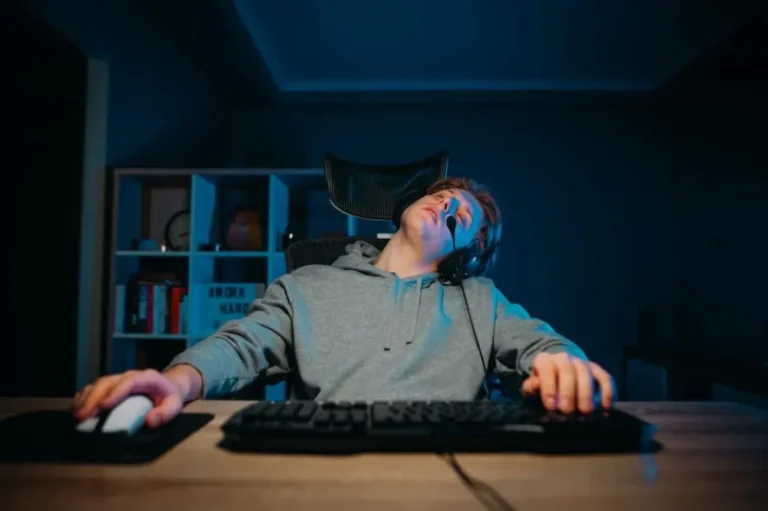Did you know that video games can disrupt your sleep? This article provides effective strategies to improve sleep quality and maintain a healthy balance between gaming and rest.
The Importance of Sleep in Daily Life
Sleep is one of the most essential factors for maintaining health and well-being. When we sleep, our body and mind recover from daily fatigue and regain energy for the next day’s activities.
The quality of sleep directly affects:
- Daily performance
- Focus and concentration
- Mood and emotional well-being
Lack of proper sleep can lead to:
- Reduced focus and productivity
- Increased stress levels
- Serious health problems
In today’s fast-paced world, many factors can negatively affect sleep, and one of the most common is video games. Understanding the impact of video games on sleep can help develop better habits for improving sleep quality.
How Video Games Affect Sleep Quality
Video games are a popular source of entertainment, but they can have significant effects on sleep, especially for regular gamers. They may cause:
- Disruptions in natural sleep cycles
- Delayed sleep onset
- Shorter sleep duration
These disturbances often occur due to mental and physical stimulation from gaming, which makes it harder for the brain to relax.
Effects of Video Games on Sleep Cycles

Video games can interrupt sleep cycles, particularly the deep sleep stages, which are crucial for physical and mental recovery.
- Exciting or strategic games keep the brain in a state of high alertness, making it harder to transition into deep sleep.
- Action-packed and fast-paced games tend to have a stronger negative impact on sleep quality.
Timing of Gaming and Its Effect on Sleep
When you play video games matters.
- Playing late at night can lead to delayed sleep onset and reduced sleep duration.
- People who regularly game at night may experience:
- Difficulty falling asleep
- Fragmented sleep
- Trouble waking up early for work or school
Key Sleep Disruptors in Video Games
While video games offer fun and educational benefits, they can also negatively affect sleep due to certain factors. Understanding these issues can help manage and improve sleep quality while still enjoying gaming.
1. Blue Light from Screens
One of the biggest sleep disruptors is blue light from screens.
- LED and LCD screens emit blue light, which reduces melatonin production (the hormone that regulates sleep).
- Lower melatonin levels delay sleep onset and reduce sleep quality.
- Blue light stimulates the brain, making it harder to relax.
Solution:
- Use blue light filters or reduce screen brightness at night.
- Enable “Night Mode” on phones, tablets, and computers.
- Wear blue light-blocking glasses before bedtime.
2. Mental Stimulation and Stress
Video games can increase stress levels and mental activity, especially:
- Competitive games
- Fast-paced action games
- Games requiring quick decision-making
This increased alertness is often accompanied by:
- Higher heart rate
- Increased adrenaline levels
- Delayed relaxation and sleep onset
Solution:
- Avoid playing intense or competitive games at least one hour before bed.
- Practice relaxation techniques after gaming.
3. Long Gaming Sessions and Fatigue
Spending too much time playing games can lead to both physical and mental exhaustion.
- Surprisingly, this doesn’t always lead to better sleep.
- After prolonged gaming, the brain takes longer to calm down, making it harder to fall asleep.
- Long gaming hours may lead to unhealthy habits like sleep deprivation.
Solution:
- Set a time limit for gaming to avoid playing for too long.
- Take breaks between gaming sessions to reduce fatigue.
Signs of Sleep Disorders Caused by Gaming
If video games are affecting your sleep, you may experience:
1. Poor Sleep Quality
- Difficulty transitioning from high alertness to relaxation
- Lack of deep, restful sleep
- Feeling tired even after sleeping for long hours
2. Difficulty Falling Asleep or Waking Up
- Struggling to fall asleep due to an overactive brain
- Difficulty waking up in the morning due to disrupted sleep cycles
- Daytime drowsiness and lack of focus
3. Daytime Sleepiness and Fatigue
- Poor sleep leads to constant fatigue throughout the day.
- This can result in lower productivity, reduced concentration, and increased safety risks.
How to Improve Sleep for Gamers
Even small changes in gaming habits can have a big impact on sleep quality. Here are effective ways to improve sleep while continuing to enjoy video games.
1. Set a Gaming Curfew
- Avoid gaming at least one hour before bedtime.
- Playing games too late at night delays sleep onset and affects sleep cycles.
- Studies by the National Sleep Foundation show that stopping video games before bedtime improves sleep quality.
2. Reduce Blue Light Exposure
- Use blue light filters or turn on Night Mode on devices.
- Wear blue light-blocking glasses to minimize the impact on sleep.
3. Practice Relaxation Techniques
- Engage in relaxing activities before bed, such as:
- Meditation
- Deep breathing exercises
- Reading a book
- These techniques lower stress levels and help the brain transition to a sleep-ready state.
4. Create a Consistent Sleep Routine
- Going to bed and waking up at the same time every day helps regulate sleep cycles.
- A structured routine is especially beneficial for professional gamers or those who game frequently.
5. Seek Professional Advice if Needed
If sleep issues become severe, consulting a sleep specialist may be necessary.
- A doctor can assess underlying sleep disorders and suggest treatment options.
- According to the American Academy of Sleep Medicine, medical guidance can improve sleep quality by up to 60%.
Conclusion
Sleep is vital for overall health, and gamers need to be mindful of their sleep habits.
By following medical advice and sleep-improving strategies, gamers can reduce the negative effects of video games on sleep while still enjoying their favorite hobby.
Ultimately, balancing gaming with a healthy sleep schedule is the key to better rest, improved daily performance, and overall well-being
